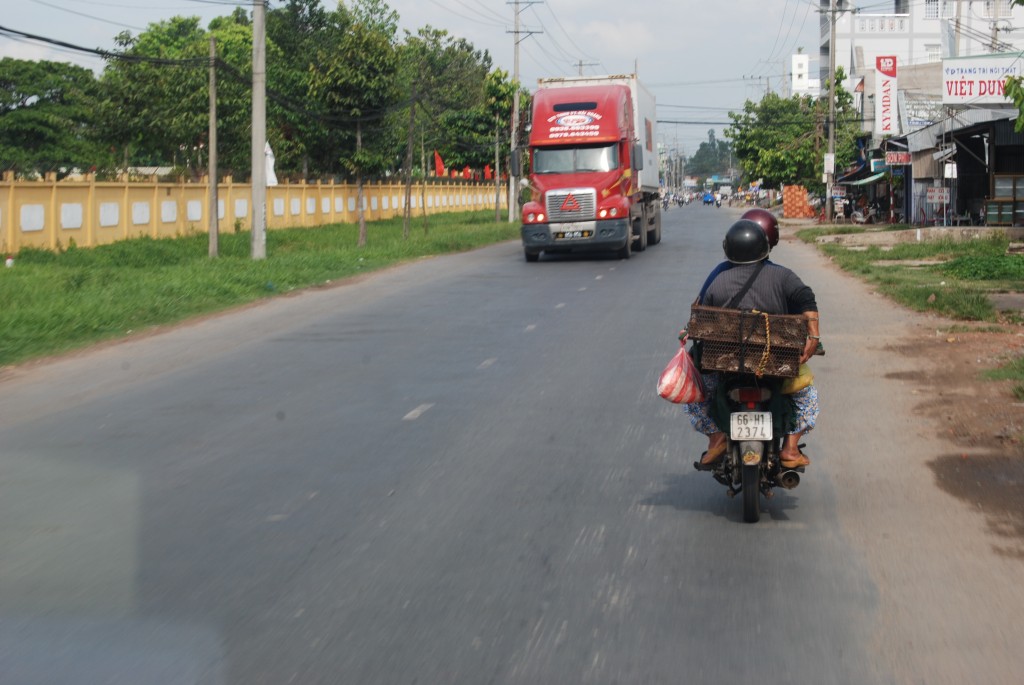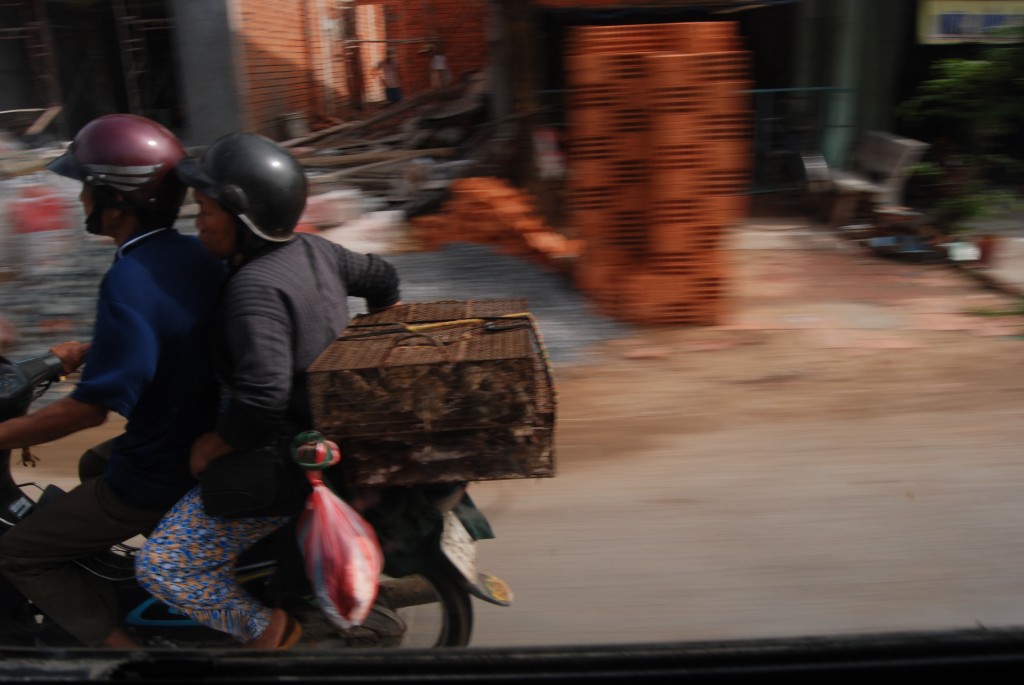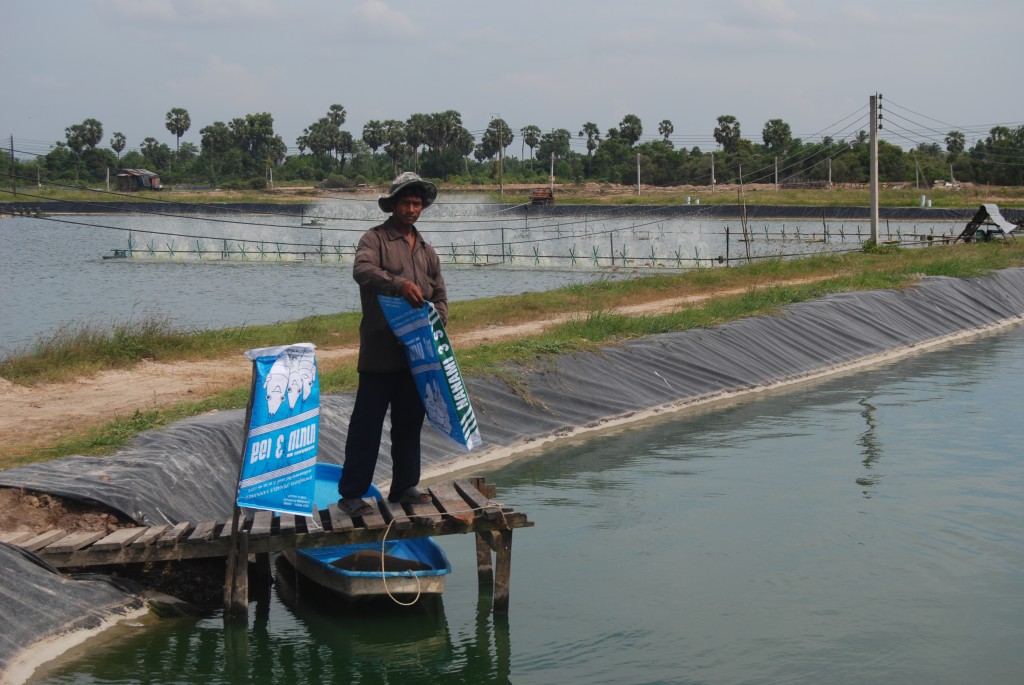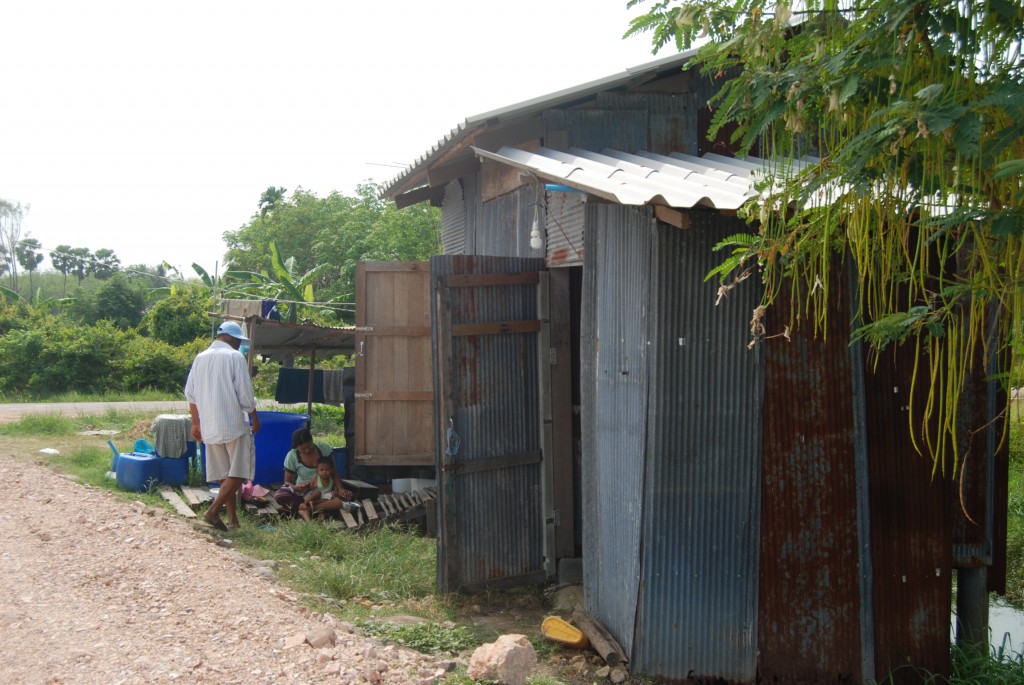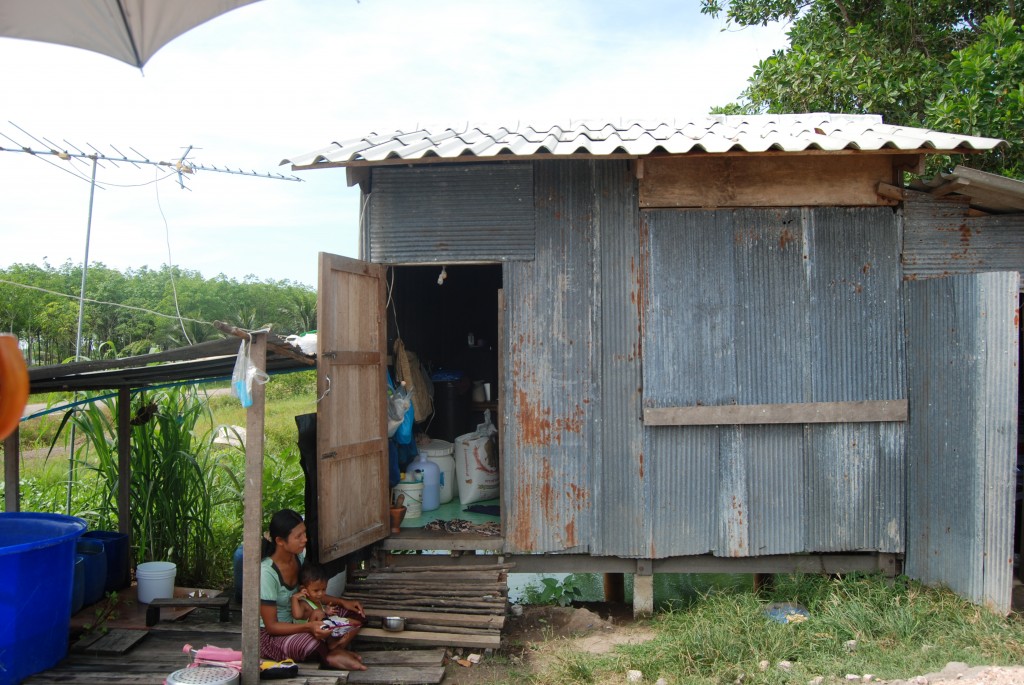Archive for May, 2011
Waste not want not?
Ok, so it should be obvious that I am a big believer in sustainability and I certainly think that we should use every nutrient and resource that we have on this planet to the fullest extent we can. However, my trip to Vietnam this week is challenging me to consider how far I am willing to go with that belief.
I have been to Vietnam several times before and I am used to seeing crazy things, especially on motorbikes, as the Vietnamese are experts at getting motorbikes to carry all manner of things that you wouldn’t expect to see on a them. What I saw today, however, was not something oversized and seemingly out-of-place but, rather, something small and furry.
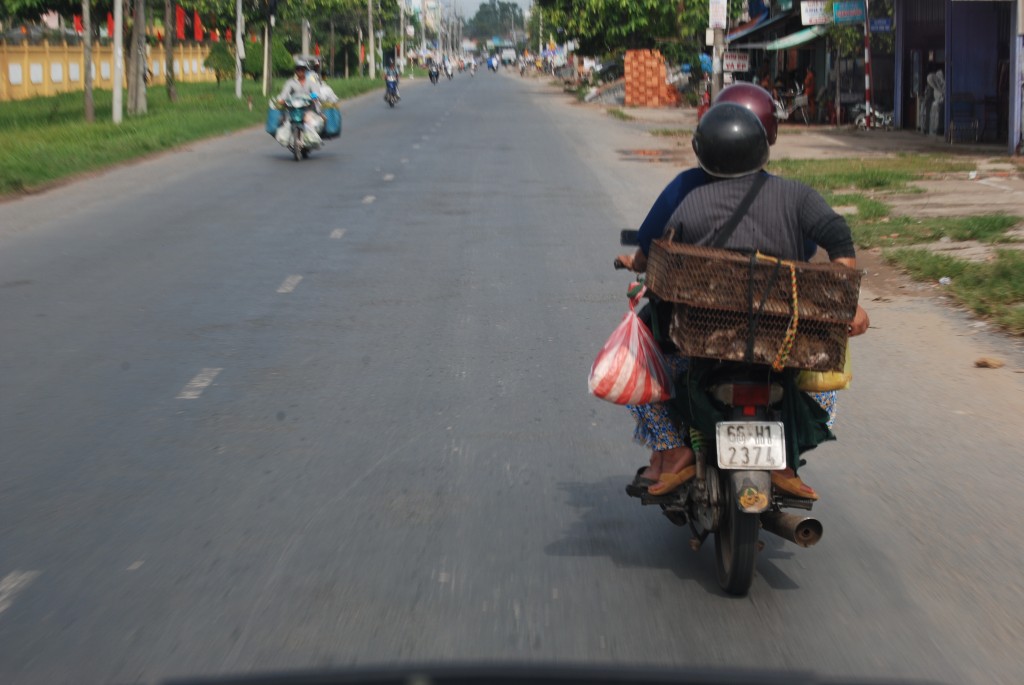
As I was returning to my hotel from my day in the field, we approached an older couple riding a motorbike with two small cages on the back. As we got closer, I soon realized that the cages were filled with rats. The driver of my taxi must have seen me looking and began to laugh and then explained to me that these rats were collected by the couple at a local restaurant and they were taking them home to eat or possibly to sell to others to eat. Yes, I said to eat!! Apparently, in south Vietnam rats are often eaten as my Vietnamese colleague explained to me.
“Waste not want not” was the first thing that jumped into my head, which was quickly followed by …well, maybe not in my world, but good for them!
Food production chains are only as “responsible” as their poorest link
We visited a shrimp farm today and it was my first experience seeing and understanding how farm workers can be accommodated. After stopping to watch a man feed the shrimp in a small boat, we approached a small hut on the side of the pond. I found myself hoping that this hut was a storage shed for materials used on the farm. However, I soon noticed that there was a woman with a baby sitting at the doorway and pictures of the Thai King (very common in Thai homes) posted on the walls inside. At that point I knew I was mistaken and that this was the home for the family of the man feeding the shrimp. While, of course, one can argue that a North American’s sense of minimum living requirements are exaggerated, I viewed this home as insufficient for the needs of this family.
I realized I was looking at the end rung of the supply chain for industrial shrimp. As the western world increases its interest and purchases of responsible products, a good indicator of whether or not this is making any difference will be if this family’s home improves. In other words, “responsible” supply chains are only as good as their poorest link.
While one might want to point the finger at the farm owner, I think it is important to realize that anyone who benefits from or uses a supply chain is part of the problem and is, therefore, responsible for finding a solution. In the west we are fond of pointing the finger at the developing world and blaming overpopulation for these types of problems, but this only allows us to avoid our own responsibility and allows the problem to continue. A basic requirement of a responsible world means that our industrial production systems function such that everyone who is involved in the supply chain is taken care of to a minimum acceptable social standard. This may mean paying higher prices for certain food products in the western world, but such price increases are, in reality, just reflecting the real cost of responsible food production.
